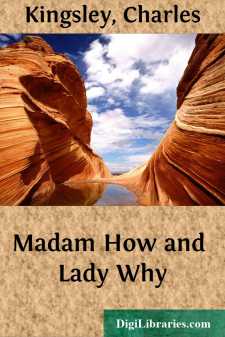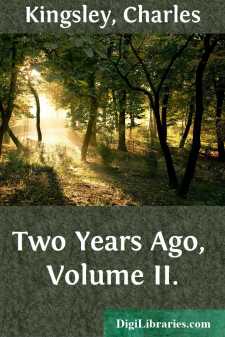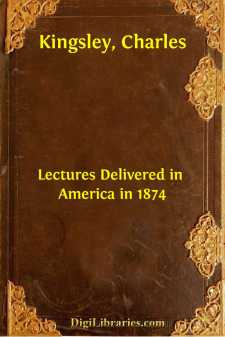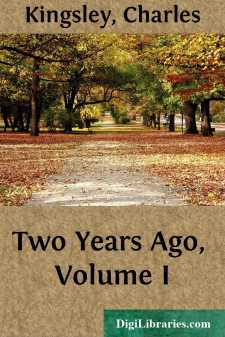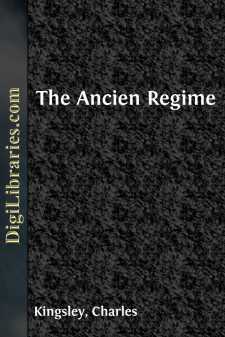Categories
- Antiques & Collectibles 13
- Architecture 36
- Art 48
- Bibles 22
- Biography & Autobiography 813
- Body, Mind & Spirit 142
- Business & Economics 28
- Children's Books 15
- Children's Fiction 12
- Computers 4
- Cooking 94
- Crafts & Hobbies 4
- Drama 346
- Education 46
- Family & Relationships 57
- Fiction 11829
- Games 19
- Gardening 17
- Health & Fitness 34
- History 1377
- House & Home 1
- Humor 147
- Juvenile Fiction 1873
- Juvenile Nonfiction 202
- Language Arts & Disciplines 88
- Law 16
- Literary Collections 686
- Literary Criticism 179
- Mathematics 13
- Medical 41
- Music 40
- Nature 179
- Non-Classifiable 1768
- Performing Arts 7
- Periodicals 1453
- Philosophy 64
- Photography 2
- Poetry 896
- Political Science 203
- Psychology 42
- Reference 154
- Religion 513
- Science 126
- Self-Help 84
- Social Science 81
- Sports & Recreation 34
- Study Aids 3
- Technology & Engineering 59
- Transportation 23
- Travel 463
- True Crime 29
Madam How and Lady Why
by: Charles Kingsley
Categories:
Description:
Excerpt
CHAPTER I—THE GLEN
You find it dull walking up here upon Hartford Bridge Flat this sad November day? Well, I do not deny that the moor looks somewhat dreary, though dull it need never be. Though the fog is clinging to the fir-trees, and creeping among the heather, till you cannot see as far as Minley Corner, hardly as far as Bramshill woods—and all the Berkshire hills are as invisible as if it was a dark midnight—yet there is plenty to be seen here at our very feet. Though there is nothing left for you to pick, and all the flowers are dead and brown, except here and there a poor half-withered scrap of bottle-heath, and nothing left for you to catch either, for the butterflies and insects are all dead too, except one poor old Daddy-long-legs, who sits upon that piece of turf, boring a hole with her tail to lay her eggs in, before the frost catches her and ends her like the rest: though all things, I say, seem dead, yet there is plenty of life around you, at your feet, I may almost say in the very stones on which you tread. And though the place itself be dreary enough, a sheet of flat heather and a little glen in it, with banks of dead fern, and a brown bog between them, and a few fir-trees struggling up—yet, if you only have eyes to see it, that little bit of glen is beautiful and wonderful,—so beautiful and so wonderful and so cunningly devised, that it took thousands of years to make it; and it is not, I believe, half finished yet.
How do I know all that? Because a fairy told it me; a fairy who lives up here upon the moor, and indeed in most places else, if people have but eyes to see her. What is her name? I cannot tell. The best name that I can give her (and I think it must be something like her real name, because she will always answer if you call her by it patiently and reverently) is Madam How. She will come in good time, if she is called, even by a little child. And she will let us see her at her work, and, what is more, teach us to copy her. But there is another fairy here likewise, whom we can hardly hope to see. Very thankful should we be if she lifted even the smallest corner of her veil, and showed us but for a moment if it were but her finger tip—so beautiful is she, and yet so awful too. But that sight, I believe, would not make us proud, as if we had had some great privilege. No, my dear child: it would make us feel smaller, and meaner, and more stupid and more ignorant than we had ever felt in our lives before; at the same time it would make us wiser than ever we were in our lives before—that one glimpse of the great glory of her whom we call Lady Why.
But I will say more of her presently. We must talk first with Madam How, and perhaps she may help us hereafter to see Lady Why. For she is the servant, and Lady Why is the mistress; though she has a Master over her again—whose name I leave for you to guess. You have heard it often already, and you will hear it again, for ever and ever.
But of one thing I must warn you, that you must not confound Madam How and Lady Why. Many people do it, and fall into great mistakes thereby,—mistakes that even a little child, if it would think, need not commit. But really great philosophers sometimes make this mistake about Why and How; and therefore it is no wonder if other people make it too, when they write children’s books about the wonders of nature, and call them “Why and Because,” or “The Reason Why.” The books are very good books, and you should read and study them: but they do not tell you really “Why and Because,” but only “How and So.” They do not tell you the “Reason Why” things happen, but only “The Way in which they happen.” However, I must not blame these good folks, for I have made the same mistake myself often, and may do it again: but all the more shame to me. For see—you know perfectly the difference between How and Why, when you are talking about yourself. If I ask you, “Why did we go out to-day?” You would not answer, “Because we opened the door.” That is the answer to “How did we go out?” The answer to Why did we go out is, “Because we chose to take a walk.” Now when we talk about other things beside ourselves, we must remember this same difference between How and Why. If I ask you, “Why does fire burn you?” you would answer, I suppose, being a little boy, “Because it is hot;” which is all you know about it. But if you were a great chemist, instead of a little boy, you would be apt to answer me, I am afraid, “Fire burns because the vibratory motion of the molecules of the heated substance communicates itself to the molecules of my skin, and so destroys their tissue;” which is, I dare say, quite true: but it only tells us how fire burns, the way or means by which it burns; it does not tell us the reason why it burns....


